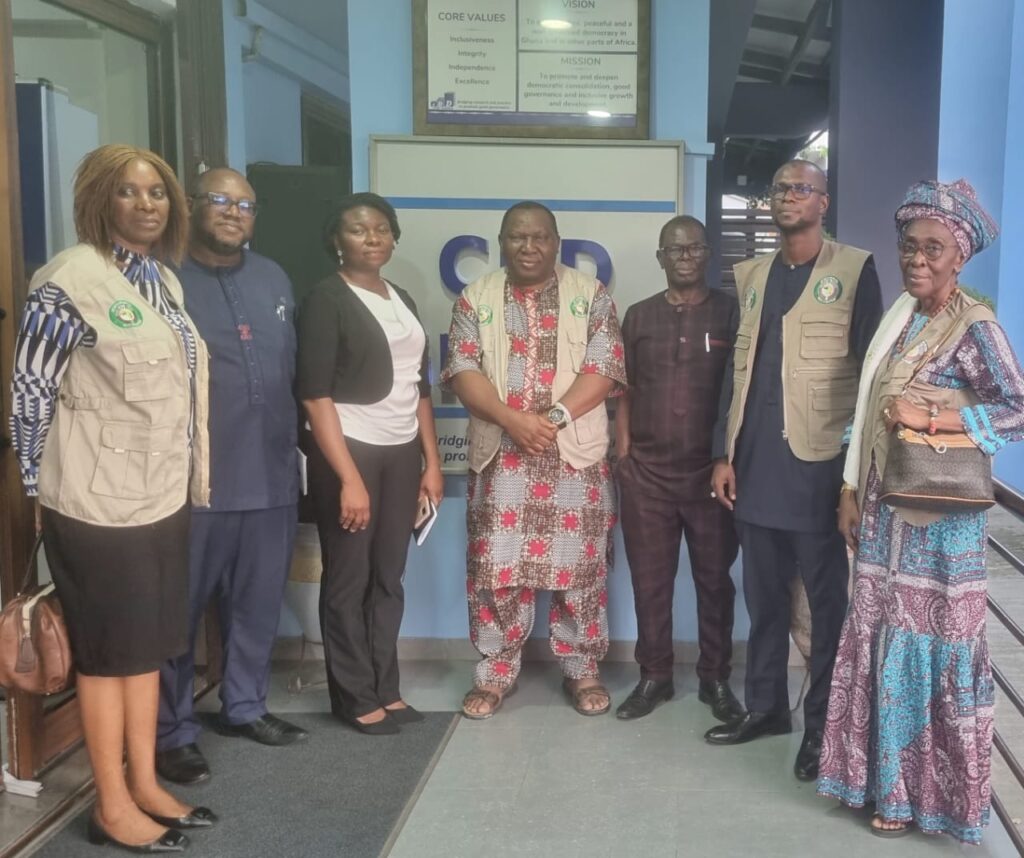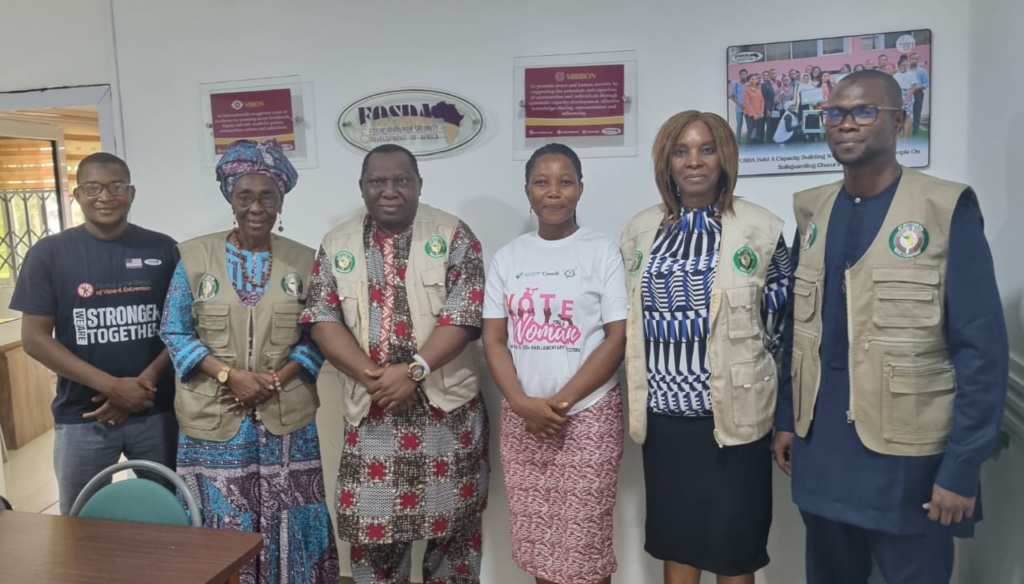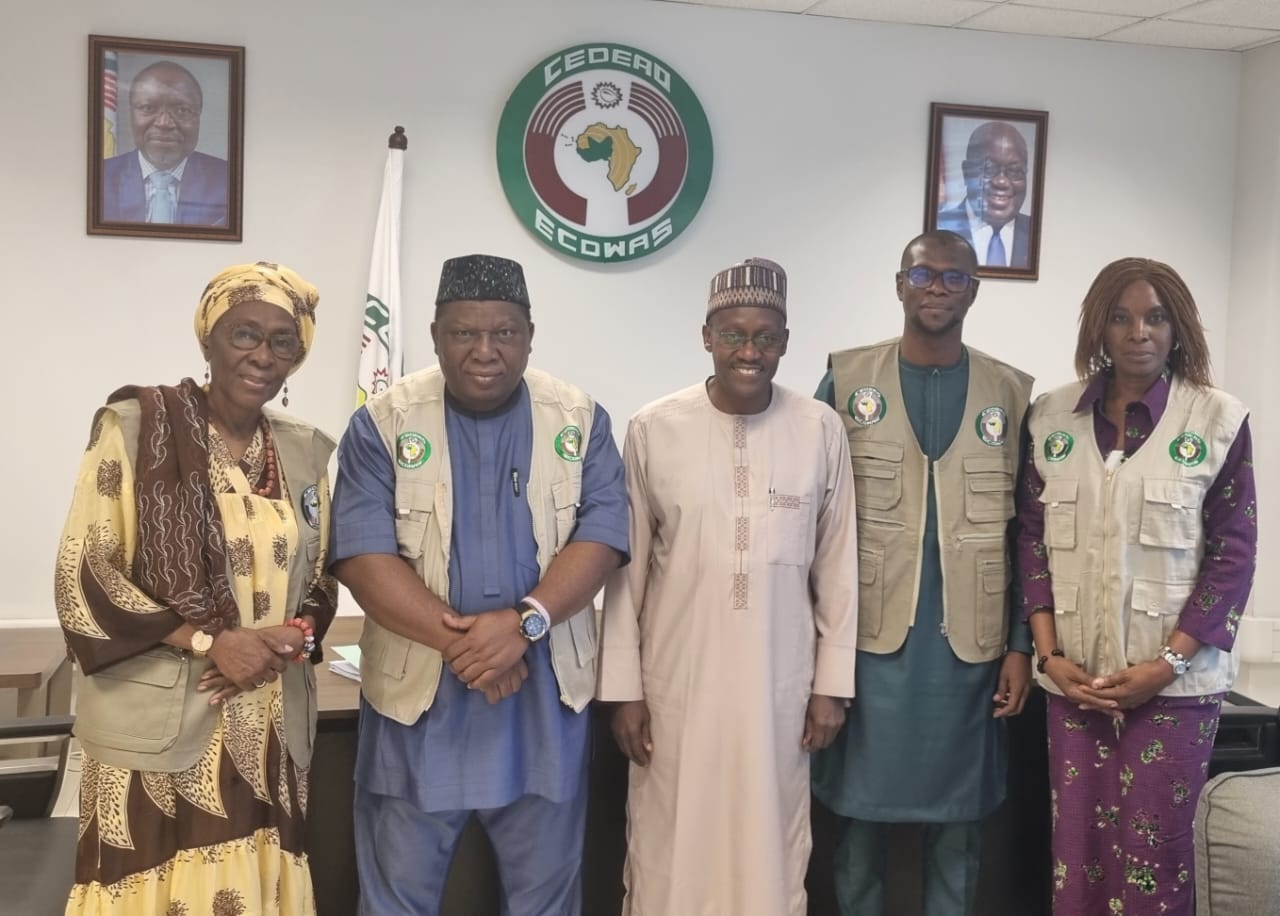
PRESS RELEASE
Accra, Ghana 20th November 2024
Ghana Elections 2024: ECOWAS Observation Mission Meets Stakeholders
The Core Team of the ECOWAS Long-Term Observation Mission has stepped up consultation meetings with stakeholders ahead of Ghana’s 7 December 2024 Presidential and Parliamentary elections.
Following their arrival on Sunday, 17th November 2024, the team met on Monday in Accra with the ECOWAS Resident Representative to Ghana, Ambassador Mohamed Lawan Gana, who briefed the delegation on the context and dynamics in the run-up to the presidential and parliamentary contests.
Ambassador Gana noted that apart from the deployment of election Observers by the President of the ECOWAS Commission Dr Omar Alieu Touray, in line with the regional protocol on Democracy and Good Governance, the Commission is also providing financial and technical support to institutions involved in the electoral process, such as the National Peace Council and the National Commission for Civic Education (NCCE).
The 120-ECOWAS Long- and Short-term Observation Mission, headed by Nigeria’s former Vice-President Namadi Sambo, is arriving in phases to be deployed across Ghana’s 16 regions and 216 Districts.
The Mission is supported by an ECOWAS Technical Team coordinated by Ambassador Abdel-Fatau Musah, the Commissioner for Political Affairs, Peace and Security.
Ahead of the elections, ECOWAS sent a fact-finding Mission to Ghana from 21-27 July to assess the country’s preparedness for the crucial vote.
On Tuesday, 19th November, the ECOWAS Core Team met in Accra, with representatives of the Foundation for Security and Development in Africa (FOSDA), the Coalition of Democratic Election Observers (CODEO) and the Centre for Democracy and Development (CDD), Ghana.
The Civil Society Organisations (CSOs), expressed cautious optimism about the relatively peaceful electoral process characterised for the first time by door-to-door campaigning by the two main political parties, against the traditional public rallies fraught with violence.
Despite the enactment of the Anti-vigilantism Act 999 of 2019, and the assurances of the Security Task Force, the CSOs noted that citizens were still concerned about the possibility of politicians “importing security outfits” to disrupt the electoral process.
While they all agreed that the Electoral Commission is gradually gaining public trust, the CSOs say the confidence in the judiciary is still low.
Dr Kojo Asante, Director of Policy Engagement and Partnerships, CDD Ghana, said the Centre and the CODEO would deploy 4,000 local observers and the Parallel Vote Tabulation tool during the elections.
Theodora Anti, Executive Director FOSDA, also informed the ECOWAS Core Team that the Foundation was intensifying its activities to up-scale youth and women’s political participation and representation and the entrenchment of the non-violence culture.
The four issues dominating the 2024 election campaigns are unemployment, performance of the economy, education and corruption.
From the 38 contenders – 11 from political parties and 27 independents that submitted applications to vie for the presidency, the Electoral Commission approved the application of 13 candidates, including four independents.
The main opposition NDC is fielding former President John Mahama, while the ruling NPP has outgoing President Nana Akufo-Addo’s deputy Mahamudu Bawumia as its presidential flag-bearer.
Outgoing President Nana Akufo-Addo is not on the ballot this year having completed his constitutionally allowed two terms.
Political tension is not uncommon in Ghana, particularly between the ruling NPP and the opposition NDC which have dominated political power for decades in Ghana.
The country is currently operating a hung parliament with no political party enjoying the majority in the 275-seat Parliament, resulting in the opposition NDC producing the Speaker of the House.
With an estimated 34.4 million population, Ghana has more than 18.7 million registered voters and 27 political parties.


![]()








